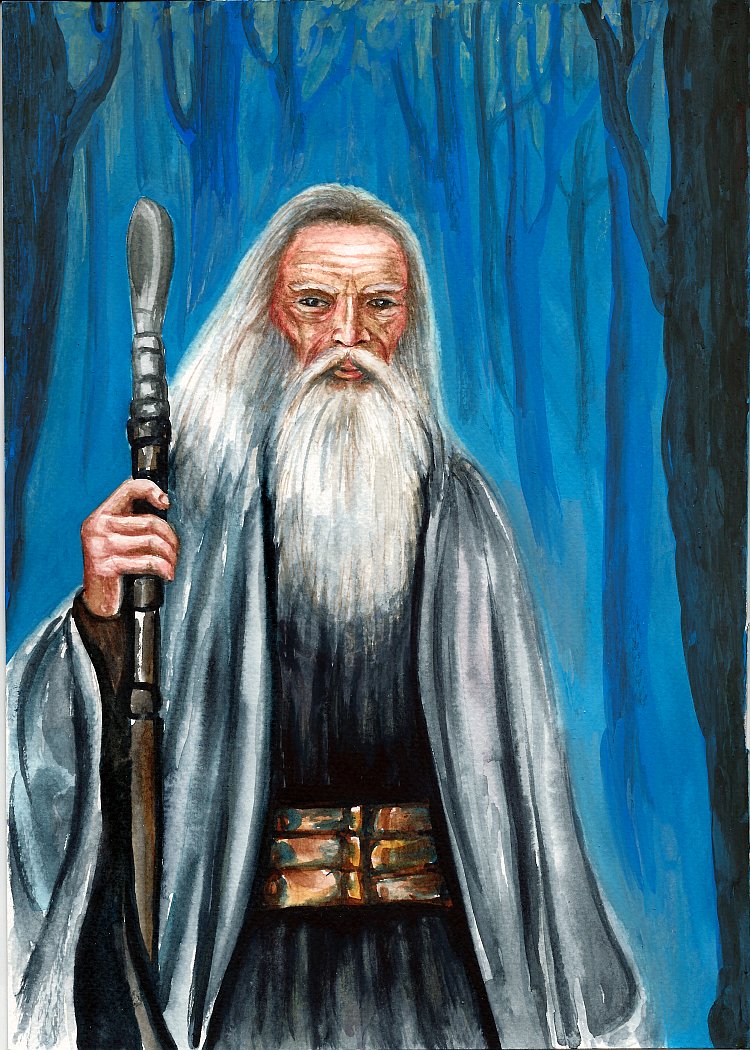Review By Christopher Nield / Image by Liza Voronin/The Epoch Times
The Riddles of Merlin
As I was walking
Alone by the sea,
“What is that whisper?”
Said Merlin to me.
“Only,” I answered,
“The sigh of the wave”—
“Oh, no,” replied Merlin,
“’Tis the grass on your grave.”
As I lay dreaming
In churchyard ground
“Listen,” said Merlin,
“What is that sound?”
“The green grass is growing,”
I answered; but he
Chuckled, “Oh, no!
‘Tis the sound of the sea.”
As I went homeward
At dusk by the shore,
“What is that crimson?”
Said Merlin once more.
“Only the sun,” I said.
“Sinking to rest”—
“Sunset for East,” he said,
“Sunrise for West.”
— Alfred Noyes (1880–1958)
If we allow ourselves to experience solitude, then we let mystery, surprise, and enchantment into our lives. That is the promise of this poem.
It begins with the speaker walking “alone by the sea” and in the most everyday manner imaginable, the ancient wizard Merlin addresses him. Is he King Arthur? Or is he Alfred Noyes, the poet from Wolverhampton, England? Neither. We are the speaker, each time we take a walk by ourselves, musing on the sea or sky, or when we recite this poem in a moment of reflection.
Merlin interrogates the speaker in a series of terse, teasing exchanges. He could be a Zen Buddhist master testing his pupil, using paradoxical statements or koans to assess his progress on the path to enlightenment. One famous example of a koan is: “What is the sound of one hand clapping?” Here Merlin asks “What is that whisper?” The speaker replies that it is “only the sigh of the wave.” His voice is full of world-weariness. He is dismissive, unobservant, and implicitly foolish. As if to shock him into awareness, Merlin evokes “the grass” on his grave. There is sadness in these words—yet also a strong peaceful stillness.
The speaker is next found “dreaming/ In churchyard ground.” Is he following his master’s instructions to seek out the sound of the “green grass”? If so, he has taken Merlin far too literally, for it is in the “green grass” that we now hear the “sound of the sea.” The wizard’s somber words break out into a chuckle, as tragedy turns to comedy. Is he merely making fun of his pupil? Or does he have a deeper lesson to impart?
In the final stanza, the speaker returns to walk by the sea. Again Merlin urges him to look at what is in front of him. What is that “crimson” on the horizon? The speaker responds: “Only the sun.” His tone is jaded and bored. “Sinking to rest,” the sun suggests a lapsing back into oblivion. It suggests the sleepy, silly mundane mind that takes things at face value. Yet Merlin’s answer points out the presence of the miraculous. Every sunset is a sunrise. Nothing is what it seems when everything becomes its own opposite. Each sight, each sound, turns itself inside out the moment we focus on it. The use of rhyme captures this sense, connecting the lines in a series of musical echoes.
Who is Merlin in the poem? For me, he symbolizes that inner voice of inspiration that drives us to look closer, harder, and better at the world around us. So take a long, unhurried walk. Visit the park. Switch off the cell phone, sit in silence and wait. An old, familiar voice will speak. The voice of Merlin. The voice of magic.
Alfred Noyes (1880–1958) was an English poet, most famous for his ballad, “The Highwayman.”
Christopher Nield is a poet living in London.




Here you can find write my essay servicefor your education.